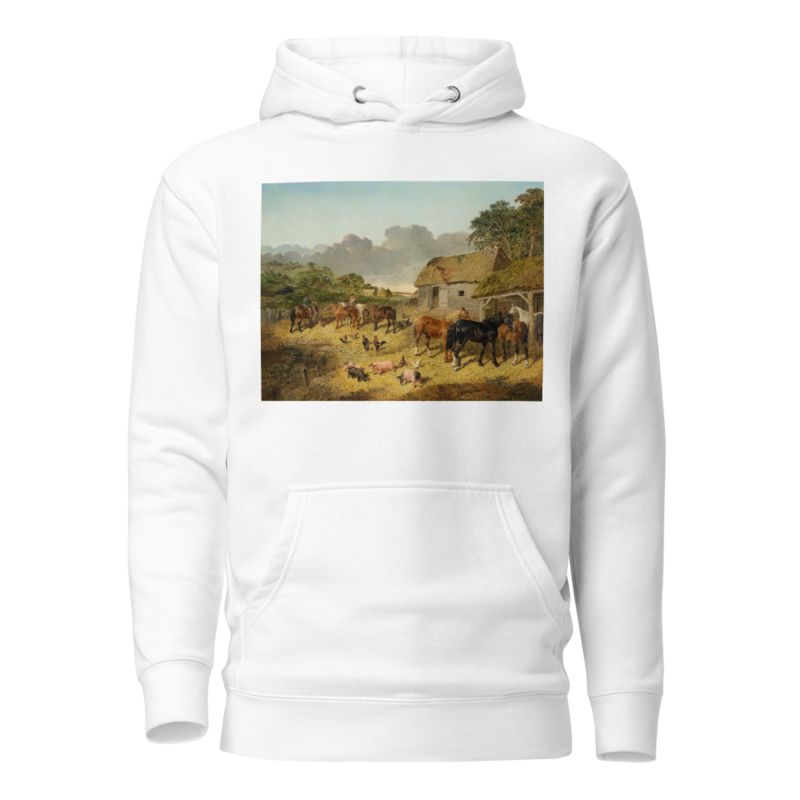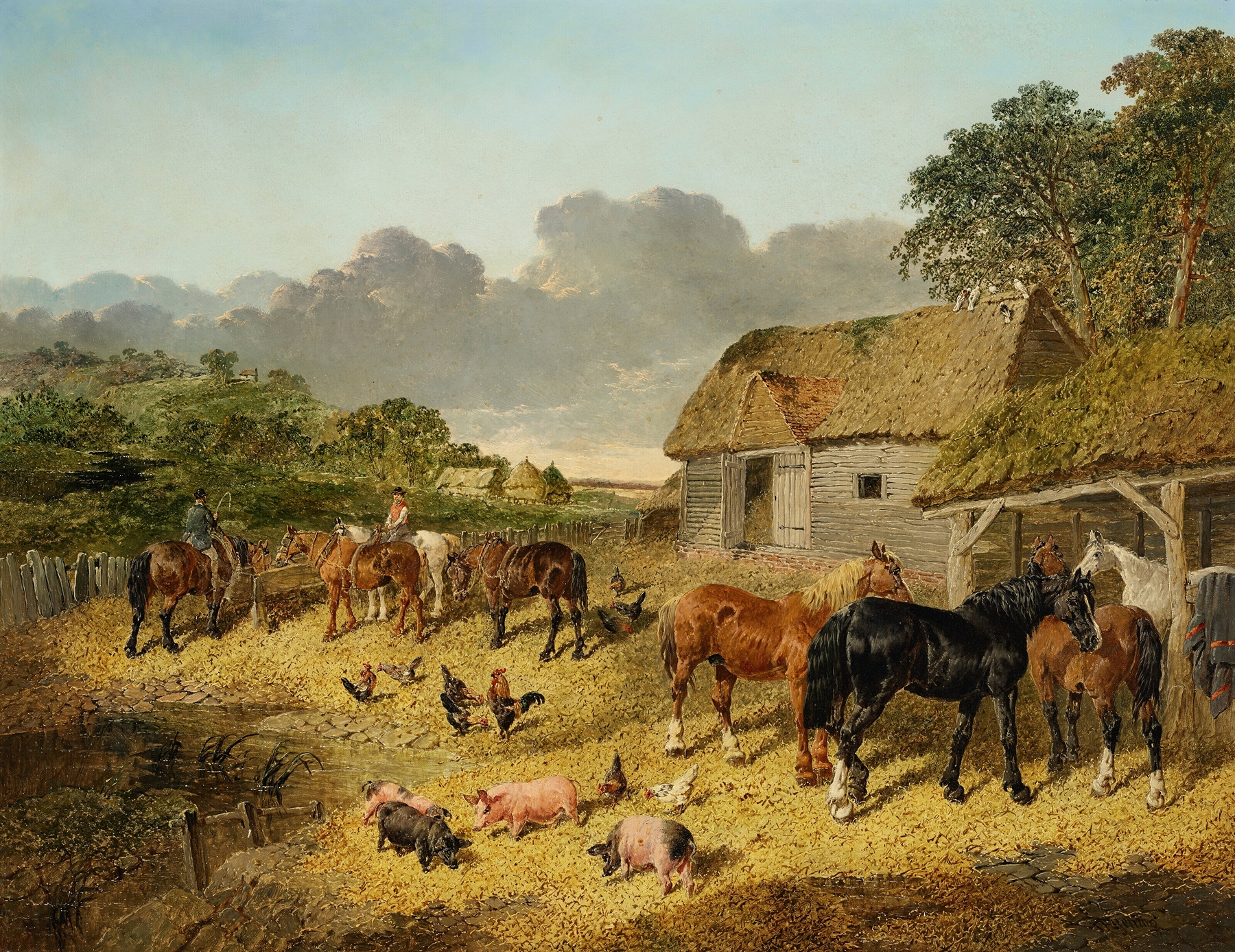Description
Horses Drinking from a Water Trough with Pigs and Chickens in a Farmyard by John Frederick Herring Jr. printed on a Hoodie
About the Hoodie
Modern fit
It provides a more tailored look than a regular fit
Comfortable
The fabric and fit of this item are extra comfy
Tear-away tag
Easily removable tear-away tag that allows you to add a custom inside label
Premium quality
The product is made from premium, high-quality materials
Classic unisex hoodie with a front pouch pocket and matching flat drawstrings. The 100% cotton exterior makes this hoodie soft to the touch.
- 65% ring-spun cotton, 35% polyester
- Charcoal Heather is 60% ring-spun cotton, 40% polyester
- Carbon Grey is 55% ring-spun cotton, 45% polyester
- 100% cotton face
- Fabric weight: 8.5 oz./yd.² (288.2 g/m²)
- Front pouch pocket
- Self-fabric patch on the back
- Matching flat drawstrings
- 3-panel hood
- Tear-away tag
John Frederick Herring Jr. (1820-1907)
John Frederick Herring Jr. was an English painter who is best known for his equine art.
John F. Herring Jr. was born in Doncaster, then in the West Riding of Yorkshire c.1820, to the well-known 19th-century artist John Frederick Herring Sr. (1795–1865), who at the time, was considered one of England’s great Sporting and Equestrian artists, patronized by the English aristocracy. The father’s mastery of the brush, and popularity with the nobility, served his son, Herring Jr., well. Early on, Herring Jr. was exposed to fine painting and wealthy patrons.
Recent reference books state that Herring Sr.’s first child was named “John Frederick Herring Jr.” and was born on 21 June 1815, later baptized on 22 October 1815. However, another child was born in 1820 and also named “John Frederick Herring Jr.” (baptized in 1821). The assumption is that the first Herring child died and the second, born in 1820, is the artist we know of today.
Herring developed a love for painting, a passion also shared by his brothers Charles and Benjamin. Three of the four brothers became artists, painting in the same style as their father, often collaborating on a single painting.
In the years after 1836, Herring Sr., feeling threatened by the teenage Herring’s ability and growing popularity, began incorporating the tag “SR” at the end of his signature.
Herring continued painting, in the tradition of his father, the sporting and animal pictures; however, as his artistic prowess improved, his style changed: he loosened his brushwork and widened his landscape views. The placement of farm animals along the banks of a stream or within a farmyard were characteristic of Herring’s work.






Reviews
There are no reviews yet.